Devotees Allow Themselves to Be Trampled by Cattle in Bizarre Ritual
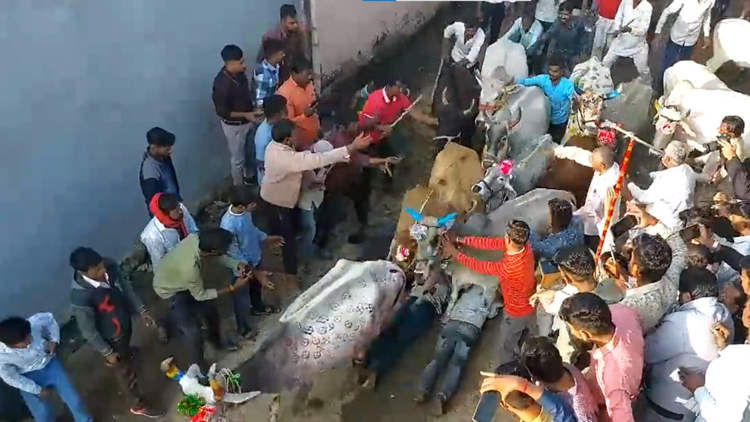
As part of a post-Diwali celebration in Madhya Pradesh’s Bhidavad village, brave men lie on the ground and allow themselves to be trampled by dozens of cattle in the name of religion. The festival of Diwali is marked with various rituals and traditions across India, but none quite as bizarre as the custom of one […]
Traditional Saudi War Dance Gives ‘Jumping the Gun’ a Literal Meaning

Taasheer is a traditional war dance performed by Saudi men and boys which involves spectacular, well-timed leaps that synchronize with the dramatic discharge of long muzzle-loading rifles. Once performed before battle to motivate fighters and instill fear in the heart of the enemy, Taasheer is now performed at important social events, like weddings and festivals. […]
Gangina – The Afghan Way of Keeping Grapes Fresh For Up to Six Months

Gangina is a traditional means of keeping grapes and other fruits fresh for several months, by sealing them in air-tight containers made of wet soil. Grapes are tricky to keep fresh for long periods of time, even when refrigeration is available, but apparently Afghans have long been using an ancient method of keeping the soft […]
The Flogsta Scream – Screaming into the Night to Relieve Stress

For decades, students living in the Flogsta neighborhood of Uppsala, in Sweden, have been engaging in a unique tradition that has come to be known around the world as the “Flogsta Scream”. Every night, at 10 pm, they open their dorm room windows and scream out into the night as a way to relieve stress. […]
Ethiopia’s Bizarre Love Affair with Raw Meat

In most places around the world, people are taught that eating raw meat is bad for them due to the high risk of contacting parasites and harmful bacteria, but in Ethiopia raw meat is a popular delicacy. Walking through the streets of Addis Ababa, the capital city of Ethiopia, it’s not uncommon to see groups […]
Ban’ei – The World’s Slowest Horse Race
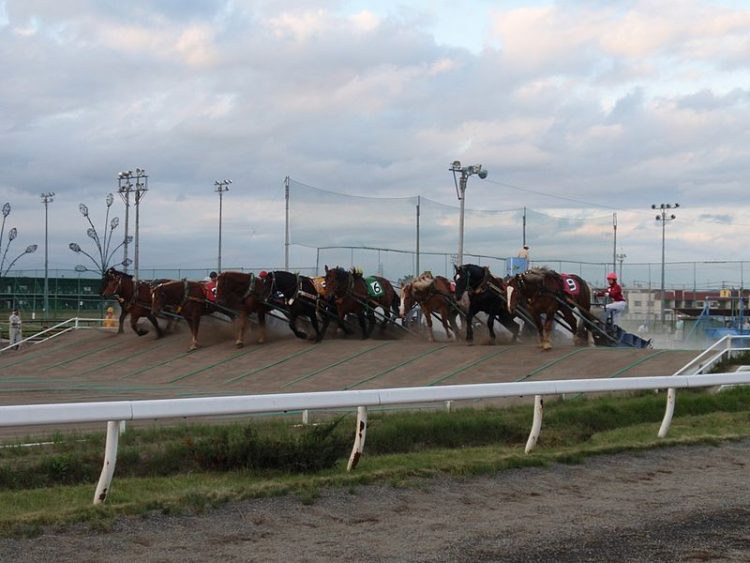
Horse races are usually all about speed, but in Ban’ei, a form of horse racing unique to the Japanese island of Hokkaidō, it’s strength and stamina that matter most. Ban’ei race horses, also known as ‘banba’, are very different from the fast thoroughbreds we associate with horse racing. They can weigh up to 1,200 kilograms […]
The World’s Oldest Lie Detector – Licking Hot Metal in the Name of Truth
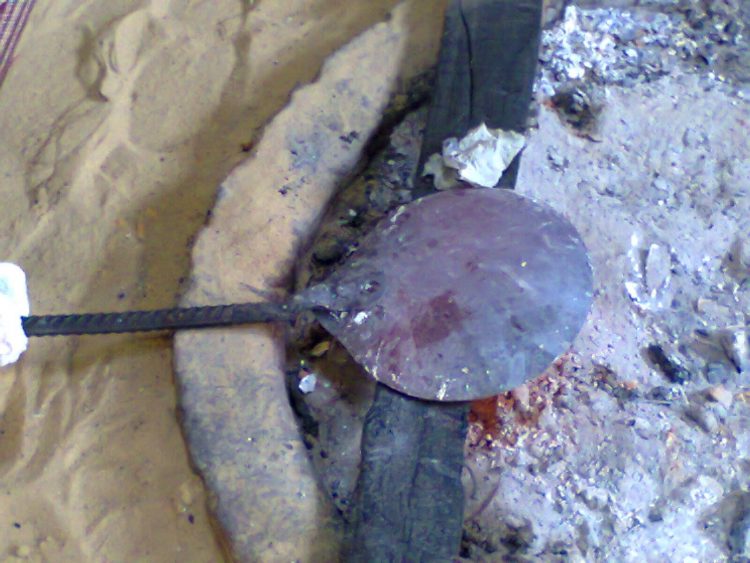
The Ayaidah, a Bedouin tribe in north-eastern Egypt is the last to practice the Bisha’h, an ancient ritual used to determine whether a suspect in a crime is innocent or guilty. They have to lick a red-hot spoon or rod in the presence of tribal authorities, and if their tongue blisters, they are guilty, if […]
Artist Uses Ancient Scandinavian Herding Call to Summon Cattle Home from Pastures
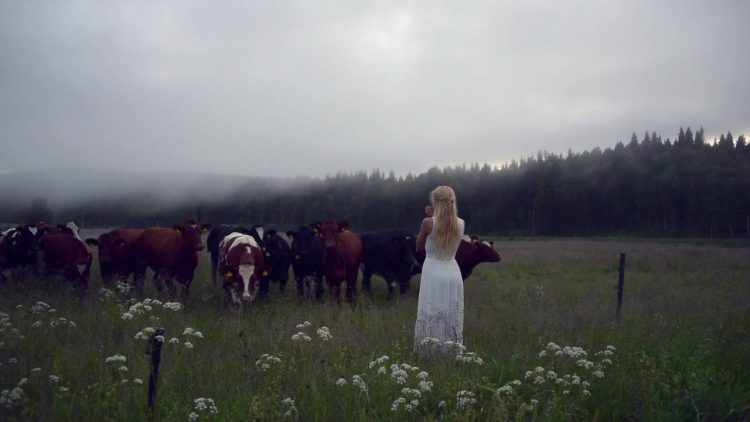
Jonna Jinton is a young blogger and photographer known for making an ancient and haunting Scandinavian herding call called “kulning” viral a couple of years ago by using it to call a herd of cattle home from the pasture. Kulning is an ancient singing technique used by women on the Scandinavian Peninsula since ancient times […]
The Country Where Burying Someone Can Take Months Or Even Years
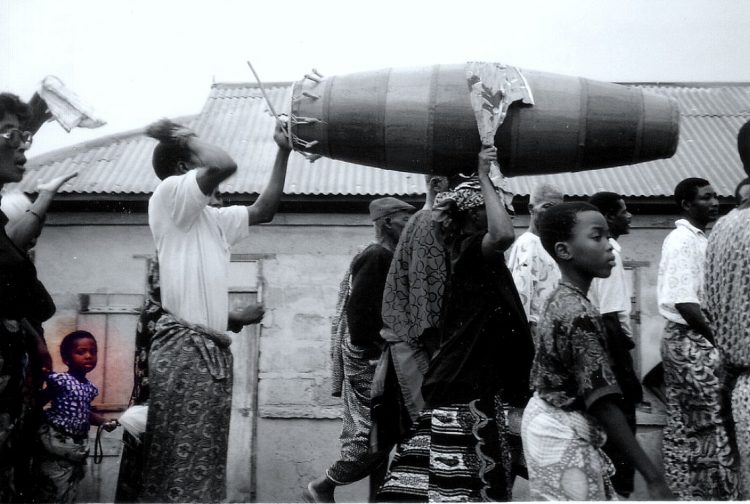
In most countries, people are buried within a few days of their death, but in the African country of Ghana, burials are complicated affairs that can take months or even years to prepare. In some communities, speedy burials are considered downright sacrilegious, so despite the wishes of the deceased and their immediate family, bodies spend […]
Thai Company Rents Out Impressive Dowry to Poor Couples Who Don’t Want to Lose Face at Wedding
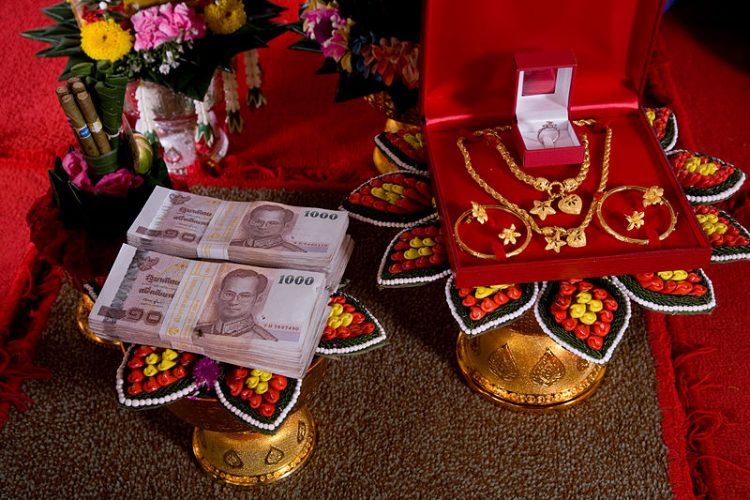
Looking for an original business idea? How about renting out expensive things to poor couples to show off as dowry during their wedding? A Thai company has been doing just that for the past three months, and business has been booming. Chiang Mai-based special event company Romantiese has been making news headlines in Thailand for their […]
Portuguese Town Encourages Children as Young as Five to Smoke on Epiphany

On January 6 the Portuguese village of Vale de Salgueiro celebrated the traditional Epiphany festival, also known as the Feast of The Three Kings. While the holiday involves such benign traditions as eating cake and singing carols, there is one tradition that causes an outcry every year – parents allow and even encourage their children […]
Beach Space Separators – A Polish Tradition

If you’re planning a vacation on the shores of the Baltic Sea, in northern Poland, you’d better buy or build yourself a space separator if you want to fit in. The bizarre accessory is apparently a must on Polish beaches, at least if you want to fit in with the crowd. I was recently browsing […]
China’s Increasing “Bride Price” Makes Marriage Virtually Impossible for Poor Bachelors

The shortage of women caused by China’s one-child policy, combined with the country’s economic boom over the last two decades have made marriage a grim prospect for poor men in rural regions. These two factors have bumped up the “bride price” to hundreds of thousands of yuan, sometimes even millions, obscene amounts that most men can’t […]
Being a Bridesmaid in China Is So Dangerous That People Are Hiring Professionals

In the Western world, bridesmaids are also known as maids of honor, but in China, they are more like maids of dishonor. From drinking large quantities of alcohol on behalf of the bride to putting up with groping and other forms of harassment, bridesmaids often take part in traditional customs that most people would consider extremely […]
Picnic with the Dead in an Idyllic Greek Village
The Pontics are a group of ethnic Greeks who prospered on the shores of the Black Sea between the years of 1914 and 1923. Over 350,000 of their population perished at the hands of the Ottomans, Kemalists and neo-Turks during the Greek Genocide, and those who remained were forced to leave their homeland to seek […]
